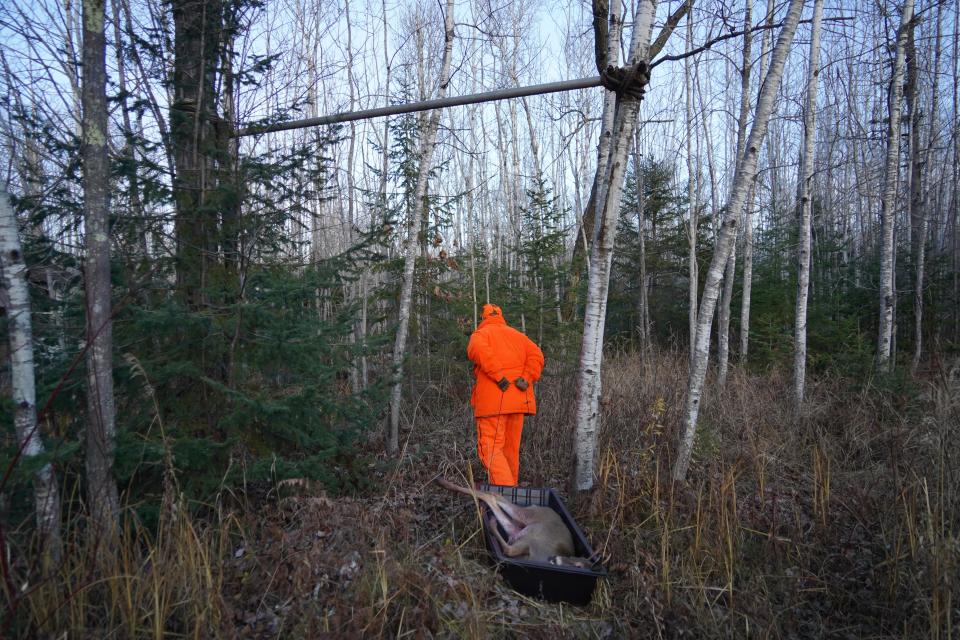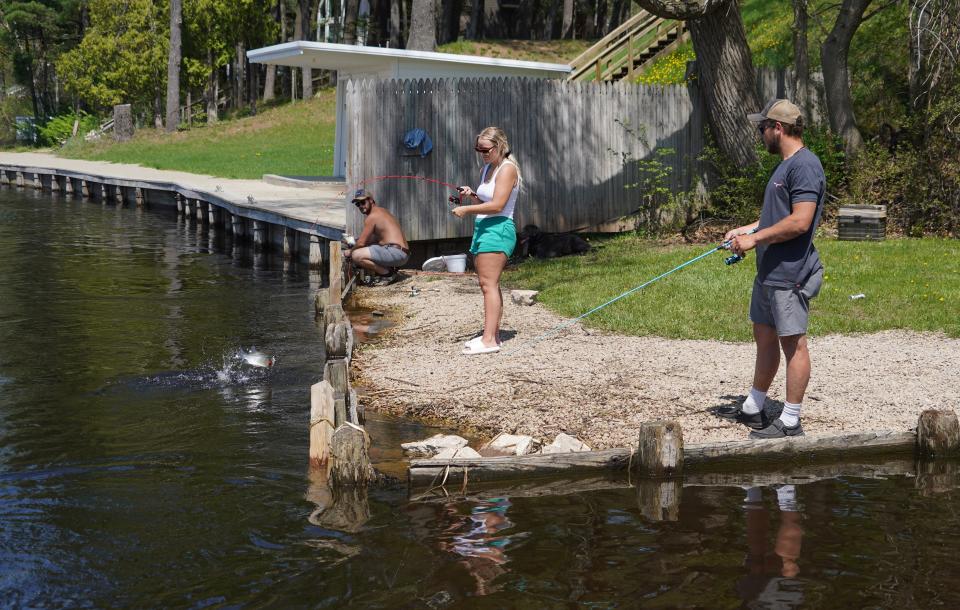Smith: 2024 spring conservation hearings are next week. Here's what to know.
Now that many Wisconsinites exercised their voting chops Tuesday in state and local elections, let's keep it rolling at the 2024 spring hearings.
This year the events, formally called the Department of Natural Resources Spring Hearings and Wisconsin Conservation Congress County Meetings, kick off April 8 with in-person gatherings in each county and follow with online voting April 10 to 13.
The in-person meetings will include elections of local WCC delegates as well as voting on DNR and WCC advisory questions and local citizen resolutions. This year's ballot will present voters with 49 advisory questions, including 12 from the DNR and 37 from the WCC.
The online voting option, which the DNR and WCC are encouraging people to use, will run from noon April 10 to noon April 13.
The results of votes on the questionnaire are not binding but assist the department, Natural Resources Board and congress as they work on future rule changes or policy positions.
Voting for county delegates, however, is binding and can only be done in-person April 8.
Conservation congress provides public input to Natural Resources Board, DNR
As a reminder, the WCC is the organization authorized in state statute to provide public input to the NRB and DNR.
The congress dates to 1934 and is composed of local volunteers who serve as delegates in each of the state's 72 counties. It was created by the State Conservation Commission (the predecessor of the NRB) to provide Wisconsin citizens with a local means for input and exchange of ideas on conservation issues.
In 1972 Gov. Patrick Lucey signed legislation that legally recognized the WCC to ensure that citizens would have a liaison to the NRB and DNR.
As part of the process, five WCC delegates are elected to represent each county. The WCC holds an annual meeting, typically in May, and its executive officers appear regularly at NRB meetings to testify on issues before the board. The chairman this year is Rob Bohmann of Racine and vice-chair is Joe Weiss of Spooner.
The April spring hearings, though, are the annual events when the general public has the greatest interaction with the WCC.

COVID changed the DNR and Wisconsin Conservation Congress meetings
In-person gatherings were a hallmark of the process for decades before the COVID-19 pandemic in 2020 prevented the DNR and WCC from organizing face-to-face meetings.
The process was affected through last year to at least some degree, especially with regard to local elections for congress delegates.
This year will be the first spring hearings since 2019 with a "normal" feel. I use the quotation marks because the voting process on advisory questions is now a hybrid of in-person and online.
In 2019 online voting was offered as an option; five years later it will likely provide the majority of input. But we'll see what the tallies hold.
Advisory question topics include deer processing, inland trout fishing, lead ammunition, wake boats
So what's on the 2024 ballot? The DNR will present five wildlife advisory questions, including one to assess public support for a rule to allow white-tailed deer hunters to leave non-edible portions of field-processed deer in the field. The change would make it easier for hunters to debone an animal and transport the meat from remote sites, a practice legal and common for big game hunters in western states.
The department will also offer seven fisheries advisory questions. One will ask if the agency should expand the inland trout fishing season by a month. The season now starts on the first Saturday in May; the proposal would open it on the first Saturday in April. Another will ask if anglers should be allowed to troll with three lines statewide; it is currently restricted to one line per angler in all or selected waters in eight counties.
The WCC will offer 37 advisory questions from its various study committees.
They include an item from the Warm Water Committee asking if Wisconsin should implement a 25-fish daily bag limit for white bass. There is currently no limit.

The WCC's Environmental Committee will ask whether Wisconsin should phase out lead ammunition for hunting by 2030. Lead has been prohibited for decades for waterfowl hunting but is still allowed for all other forms of hunting.
Wake boats are once again the topic of several WCC advisory questions. In 2023 wake boat questions received the highest number of responses on the ballot. One this year will ask if the Legislature should create a statute prohibiting the use of wake boat ballast systems on Wisconsin's lakes and rivers. Another will ask whether statutes should be modified to allow wake boats to operate only on state waters larger than 1,500 acres, more than 20 feet deep and at least 700 feet from shore and other lake users.
And a congress advisory question will ask if powerline companies should be prevented from mowing transmission line rights-of-way during summer. The change is intended to allow native vegetation to grow and provide habitat for wildlife and insects.
How to participate in the spring conservation hearings
The April 8 meetings will begin at 6 p.m. and are expected to run through about 8:30, according to the DNR.
Here are the April 8 meeting sites in 10 of the more populous counties: Brown County, Northeast Wisconsin Technical College, 2740 W. Mason St. Green Bay; Marathon County, DC Everest Middle School, 9302 Schofield Ave., Schofield; Milwaukee County, Milwaukee DNR Service Center, 1027 W. St. Paul Ave., Milwaukee; Outagamie County, Appleton North High School, 5000 N. Ballard Rd., Appleton; Ozaukee County, Webster Middle School, W75 N624 Wauwatosa Rd., Cedarburg; Portage County, Benjamin Franklin Junior High School, 2000 Polk St., Stevens Point; Racine County, Union Grove High School, 3433 South Colony Ave., Union Grove; Washington County, West Bend City Hall, 1115 S. Main St., West Bend; Waukesha County, DNR Waukesha Service Center, 141 NW Barstow St., Waukesha; Winnebago County, Alberta Kimball Auditorium, 375 N. Eagle St., Oshkosh.
The online voting will open at noon April 10 and run through noon April 13. For a full list of meeting sites, learn more about the WCC process or to vote online, visit dnr.wi.gov and search for Spring Hearings.
For a full list of meeting sites, visit dnr.wi.gov.
This article originally appeared on Milwaukee Journal Sentinel: Wisconsin 2024 DNR, WCC spring conservation hearings are April 8

